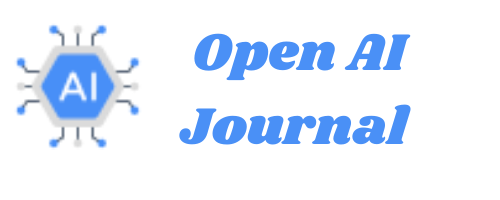Which Of The Best AI Tools In 2025 Will Transform Your Future?

Table of Contents
The best AI tools in 2025 are not just technological gadgets but integral components of our daily lives, revolutionizing how we work, create, and connect. If you’ve ever wondered how far AI could go or how it might simplify even the most complex tasks, 2025 is the year you’ll find your answers.
Artificial Intelligence has been on an exhilarating journey, and by 2025, its presence will feel like second nature. AI tools are no longer limited to tech-savvy individuals or giant corporations—they’re accessible to everyone, from students tackling assignments to business leaders streamlining operations. Tools like ChatGPT, Jasper, and GitHub Copilot have already demonstrated what’s possible. Now, imagine them more refined, versatile, and smarter than ever.
What makes 2025 stand out is the sheer diversity and sophistication of AI tools. They’ve grown from being specialized utilities to multifaceted systems that can manage everything from your morning to-do list to your company’s quarterly strategy. And the numbers speak volumes: with the AI market projected to grow at an annual rate of 36.6% between 2024 and 2030, we’re looking at a future brimming with possibilities.
But here’s where it gets personal for me. Over the years, I’ve explored countless AI tools—some mind-blowingly innovative, others… not so much. Each tool taught me something about how AI is bridging the gap between human creativity and machine efficiency. That’s why I’m thrilled to share insights about the best AI tools in 2025, diving into categories like productivity, creativity, and business. Trust me, whether you’re an entrepreneur, a student, or just someone trying to stay ahead in this fast-paced world, there’s an AI tool for you.
So, let’s explore the game-changing AI tools making 2025 a year to remember. From tools that generate viral content to those that manage sustainable energy solutions, this guide will show you how to navigate and benefit from this new AI era.
The Best AI Tools In 2025 AI Tools: Categories and Recommendations
Let’s dive deeper into the best AI tools in 2025 that are revolutionizing productivity across various domains. I’ve personally explored these tools, and I’m excited to share my insights with you.
1. AI-Powered Writing Assistants
Grammarly:

Grammarly has been a game-changer for many writers, offering real-time grammar and style suggestions. Its advanced AI capabilities help ensure clarity and correctness in writing. In 2025, it’s expected to continue its dominance in the writing assistant space.
Jasper:
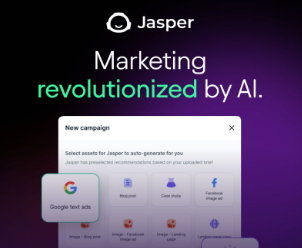
Jasper is renowned for generating creative content, making it invaluable for marketers and content creators. Its AI-driven suggestions assist in crafting engaging narratives, saving time and enhancing creativity.
2. Video Generation and Editing
Synthesia:

Synthesia enables the creation of professional videos without the need for extensive equipment. Its AI avatars and voiceovers simplify video production, making it accessible to a broader audience.
Runway:

Runway offers AI-powered video editing features, including background removal and color grading, streamlining the editing process for creators.
3. Image Creation and Graphic Design
Canva Magic Studio:

Canva’s AI-driven design tools assist users in creating visually appealing graphics with ease, catering to both professionals and novices.
DALL·E 3:

Developed by OpenAI, DALL·E 3 generates unique and realistic images from textual descriptions, pushing the boundaries of AI in art and design.
4. Project Management
Asana:

Asana integrates AI to enhance task management, helping teams organize, track, and manage work efficiently.
ClickUp:

ClickUp’s AI features assist in automating workflows and improving team collaboration, making project management more intuitive.
5. AI Chatbots and Virtual Assistants
ChatGPT:

OpenAI’s ChatGPT powers numerous chatbots, providing human-like interactions and assisting users across various platforms.
Claude:
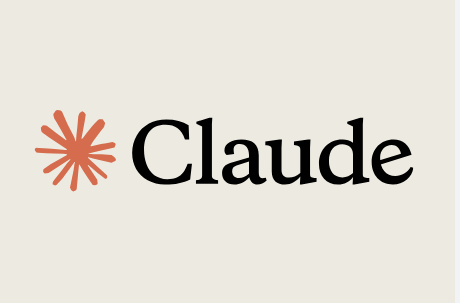
Claude offers AI-driven conversational capabilities, enhancing customer service experiences with its advanced language understanding.
6. Transcription and Meeting Assistants
tl;dv:
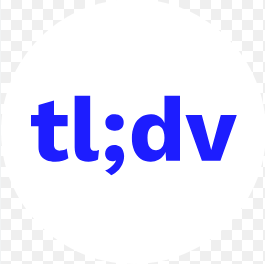
This tool provides AI-powered transcription services, making it easier to capture and review meeting notes.
Nyota:

Nyota offers AI-driven meeting assistance, including transcription and actionable insights, enhancing productivity in virtual meetings.
7. Social Media Management
Vista Social:
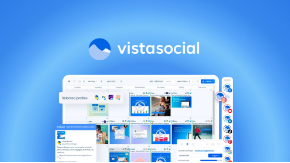
Vista Social utilizes AI to optimize social media strategies, assisting in content scheduling and performance analysis.
FeedHive:

FeedHive’s AI capabilities help in crafting engaging social media posts and analyzing audience engagement for better reach.
8. Search Engines
Perplexity:

Perplexity offers AI-enhanced search capabilities, providing users with more accurate and context-rich search results.
ChatGPT Search:

Leveraging OpenAI’s technology, ChatGPT Search delivers conversational search experiences, making information retrieval more intuitive.
9. App Builders
Bubble:

Bubble allows users to create web applications without coding, utilizing AI to simplify the development process.
Bolt:

Bolt offers AI-driven app development tools, enabling rapid prototyping and deployment of applications.
10. Customer Service
Tidio AI:
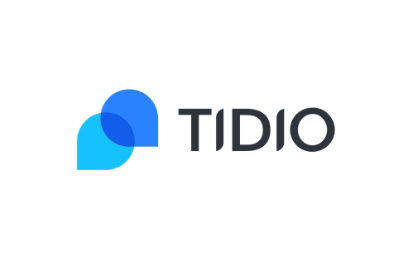
Tidio AI enhances customer service with AI-powered chatbots, improving response times and customer satisfaction.
Hiver:
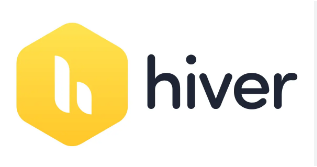
Hiver integrates AI to manage customer queries efficiently, streamlining support workflows for businesses.
11. Recruitment
Textio:

Textio uses AI to craft compelling job descriptions, attracting suitable candidates and enhancing recruitment efforts.
CVViZ:
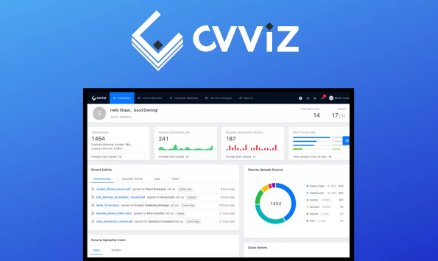
CVViZ offers AI-driven recruitment solutions, assisting in candidate screening and matching to streamline hiring processes.
12. Knowledge Management
Notion AI Q&A:

Notion’s AI features assist in managing and retrieving knowledge within organizations, enhancing information accessibility.
Guru:

Guru utilizes AI to provide real-time knowledge management, ensuring teams have access to accurate information when needed.
How to Choose the Right AI Tools
Hey there! Navigating the landscape of the best AI tools in 2025 can feel overwhelming, but with a thoughtful approach, you can select tools that genuinely enhance your productivity. Let’s delve into some key considerations to guide your decision-making process.
1. Identify Your Specific Needs
Start by pinpointing the tasks you aim to streamline with AI. Are you looking to automate content creation, enhance customer service, or improve data analysis? Clearly defining your objectives will help narrow down the tools that align with your goals.
2. Evaluate User-Friendliness
An AI tool should simplify your workflow, not complicate it. Look for intuitive interfaces and robust customer support. For instance, tools like Grammarly and Canva Magic Studio are celebrated for their user-friendly designs, making them accessible even to those without technical expertise.
3. Assess Integration Capabilities
Consider how well the AI tool integrates with your existing systems. Seamless integration minimizes disruptions and enhances efficiency. Platforms like Asana and ClickUp offer AI features that integrate smoothly into various project management workflows, facilitating better team collaboration.
4. Analyze Cost vs. Benefit
While some AI tools come with a hefty price tag, it’s essential to weigh the costs against the potential benefits. OpenAI’s advanced models, for example, offer superior performance but at a higher cost, which might be justified if they significantly boost your productivity.
5. Stay Updated on AI Advancements
The AI landscape is rapidly evolving. Staying informed about the latest developments can help you make informed decisions. For instance, the generative AI market is projected to grow to $220 billion by 2025, with 75% of enterprises integrating generative AI into product development processes.
6. Consider Ethical Implications
Reflect on the ethical aspects of using AI tools, such as data privacy and potential biases. Responsible AI usage not only safeguards your business but also builds trust with your audience. As AI becomes more prevalent, understanding its ethical implications is crucial for sustainable and responsible adoption.
7. Leverage Trial Periods
Many AI tools offer free trials or freemium versions. Utilizing these can provide hands-on experience, helping you determine if a tool fits seamlessly into your workflow before making a financial commitment. For example, several AI writing assistants and image generation tools offer trial periods to explore their features.
8. Seek Community Feedback
Engage with user reviews and community forums to gain insights into the real-world performance of AI tools. Platforms like Reddit and Stack Overflow host discussions where users share their experiences, offering valuable perspectives that can inform your choices.
9. Plan for Scalability
Choose AI tools that can grow with your needs. Scalable solutions ensure that as your business expands, the tools remain effective and continue to meet your evolving requirements. This is particularly important in dynamic industries where adaptability is key.
10. Monitor Performance Metrics
After implementing an AI tool, regularly assess its impact on your productivity. Monitoring key performance indicators will help you evaluate the tool’s effectiveness and inform any necessary adjustments. For instance, businesses utilizing AI writing tools have reported a 35% increase in productivity, highlighting the potential benefits of appropriate tool selection.
In summary, selecting the right AI tools in 2025 involves a comprehensive evaluation of your specific needs, the tool’s usability, integration capabilities, cost-effectiveness, and ethical considerations. By staying informed and critically assessing each option, you can make choices that significantly enhance your productivity and align with your long-term objectives.
The Future of AI Tools

Let’s chat about where AI tools are headed, especially as we look toward 2025. It’s an exciting time, with technology evolving rapidly and reshaping how we work and live.
1. Integration into Daily Life
By 2025, AI won’t just be an add-on; it’ll be woven into the fabric of our daily routines. Think of AI-powered personal assistants that manage your schedule, anticipate your needs, and even handle tasks autonomously. Microsoft predicts that AI will transition from being a mere tool to becoming an integral part of both work and home life, simplifying tasks and enhancing productivity.
2. Agentic AI: The Rise of Autonomous Agents
We’re on the brink of seeing AI systems that can operate with greater autonomy. These “agentic AI” tools will perform complex tasks without constant human oversight, from personalized customer interactions to real-time problem-solving in various industries. This shift is expected to make AI an everyday operational necessity across sectors.
3. Enhanced Decision-Making
AI’s ability to analyze vast amounts of data in real-time will revolutionize decision-making processes. Businesses are already experiencing this shift, with 62% reporting significant improvements in customer service through enhanced personalization, thanks to AI analytics.
4. Industry-Specific Applications
Different sectors are set to benefit uniquely from AI advancements:
- Healthcare: AI will analyze medical records, imaging data, and genomic information to provide personalized treatment plans, moving us closer to truly individualized healthcare.
- Retail: Generative AI is becoming a staple, with 36% of retail employees already using it—a number expected to grow to 45% by 2025. Retailers are leveraging AI for inventory management, customer service, and personalized marketing.
5. Economic Impact
The AI market is booming, with an expected annual growth rate of 36.6% between 2024 and 2030. This surge indicates not only technological advancement but also significant economic implications, including job creation in AI development and related fields.
6. Ethical and Regulatory Considerations
As AI becomes more pervasive, ethical considerations are paramount. Issues like data privacy, algorithmic bias, and the need for transparency are prompting discussions around AI legislation. By 2025, we can expect more robust frameworks to ensure responsible AI development and deployment.
7. AI in Creative Endeavors
AI is also making waves in creative fields. Tools that generate art, music, and literature are becoming more sophisticated, enabling creators to push the boundaries of their work. This collaboration between human creativity and machine learning is opening up new avenues for artistic expression.
In summary, the future of AI tools is bright and expansive. By 2025, we’ll see AI deeply embedded in our daily lives, driving efficiency, personalization, and innovation across various sectors. Staying informed and adaptable will be key to harnessing the full potential of these advancements.
Conclusion
The best AI tools in 2025 are transforming how we work and create. From writing assistants like Grammarly and Jasper to powerful video editors like Synthesia, these tools save time, enhance creativity, and streamline workflows.
Based on personal experience and research, integrating the right AI tools can unlock productivity you didn’t think possible. While challenges like cost and over-reliance exist, the benefits far outweigh them.
So, whether you’re a content creator, entrepreneur, or professional, there’s an AI tool tailored to your needs. Embrace them—and see how they revolutionize your 2025.
